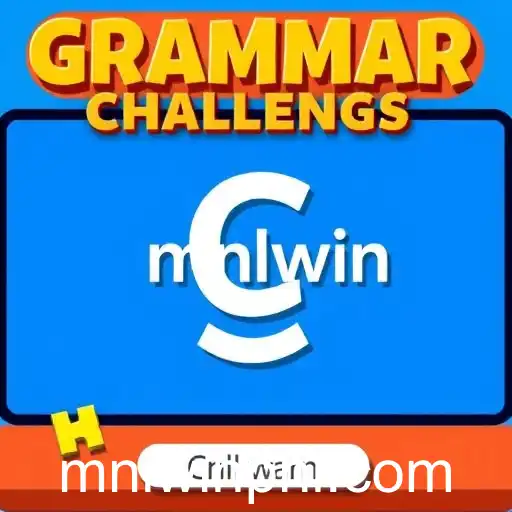In recent years, grammar games have gained significant traction as an innovative approach to language learning, offering a mix of education and entertainment. A notable trend within this genre is the emergence of 'mnlwin' as a keyword that has been capturing the interest of both developers and players alike. This intriguing keyword seems to encapsulate a burgeoning theme within the broader category of grammar games available on various online platforms.
Grammar games serve a dual purpose: they not only reinforce language rules but also make learning a more engaging and interactive experience. Traditional grammar exercises can often be perceived as mundane or repetitive. However, by integrating game mechanics, developers have managed to transform these exercises into dynamic challenges that stimulate interest and promote sustained engagement. The keyword 'mnlwin' seems to be a part of this innovative wave, possibly representing a specific series or type of challenge that players find appealing.
The incorporation of 'mnlwin' into grammar games might reflect a series designed with particular educational objectives in mind. It could represent levels or modules that gradually increase in complexity, providing players with a structured path to mastery. This progression is crucial in language acquisition as it aligns with pedagogical strategies that emphasize incremental learning.
Moreover, 'mnlwin' might also involve a competitive element, encouraging users to improve their scores, thus fostering a sense of achievement as they conquer each level. This competitive edge can be especially motivating for learners who thrive on challenges and enjoy measuring their success against others. Online leaderboards, multiplayer options, or time-based challenges could all be components of games utilizing the 'mnlwin' keyword, further enhancing their appeal.
Beyond the educational benefits, grammar games like those featuring 'mnlwin' also contribute to cognitive development. Players often engage in activities that require quick thinking, problem-solving, and analytical skills. These tasks not only enhance language proficiency but also aid in developing overall mental agility. Additionally, they provide a platform for social interaction among peers, which is an essential element of language learning.
As educators and learners continue to seek innovative resources to enhance language acquisition, the role of grammar games is poised to expand. The keyword 'mnlwin' encapsulates the potential of this growing trend, signifying perhaps a unique subcategory within this genre or perhaps even a hallmark of a particular brand's approach to grammar-based education. Regardless of its specific context, 'mnlwin' represents the innovative spirit that is driving the evolution of educational content in the digital age. In conclusion, as technology continues to reshape educational paradigms, grammar games – particularly those integrating emerging keywords like 'mnlwin' – are likely to play a pivotal role in meeting the diverse needs of learners seeking engaging and effective ways to master new languages.

Dive into the fascinating realm of grammar games with a focus on the evolving keyword 'mnlwin'. This article sheds light on how these games are revolutionizing language learning and aims to engage both educators and learners.




